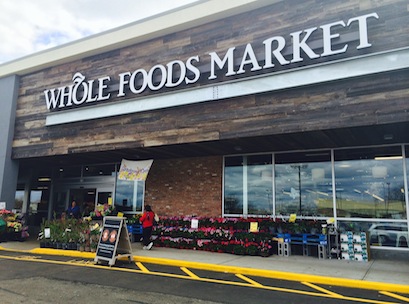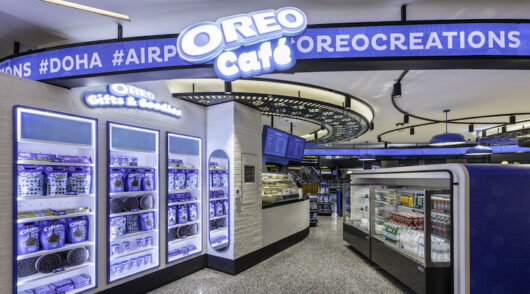 Whole Foods shareholders have voted to bless a US$13.7 billion (A$17.3 billion) union with Amazon that the organic grocery chain’s CEO had called “love at first sight”.
Whole Foods shareholders have voted to bless a US$13.7 billion (A$17.3 billion) union with Amazon that the organic grocery chain’s CEO had called “love at first sight”.
That approval is one step required to close the deal, which is a bold move into physical stores for Amazon and has the possibility of bringing big changes to the supermarket industry and how people order groceries online.
By buying Whole Foods, Amazon will get more than 460 stores and potentially very lucrative data about how shoppers behave offline.
The deal also needs the go-ahead from government regulators. A union that represents food-industry workers has asked the Federal Trade Commission to scrutinise the deal closely, saying that it could hurt competition and lead to job cuts. Regulators tend to block deals when two direct competitors are combining, and Amazon, despite its dominance in the online marketplace, doesn’t currently have a big groceries business.
In the meantime, rivals are scrambling to catch up with the e-commerce giant. Walmart, which has the largest share of the US grocery market, is expanding its grocery delivery service with ride-hailing service Uber and announced on Wednesday that it will join forces with Google to let shoppers order goods by voice on Google devices.
The deal may also breathe new life into Whole Foods, which had been under intense shareholder pressure to improve results and retain customers who have more choices about where to get natural foods. As Whole Foods grew, more supermarkets offered similar organic and natural foods, but at cheaper prices.
Amazon and Whole Foods have not given many details about what might change for customers, though Whole Foods CEO John Mackey gave some general clues at a town hall with employees after the deal was announced.
He said he thought Amazon would help with efforts on cost-cutting and a loyalty program. He noted Amazon is known for its innovation and said that company could turn Whole Foods from “the class dunce” to “valedictorian”.
Mackey had said the deal came about after a “whirlwind courtship” and that “it was truly love at first sight”.
As part of the deal, Amazon will pay Whole Foods shareholders $US42 for each share they own. That was an 18 per cent premium from its stock price the day before the tie-up was announced on June 16. Shares of Whole Foods Market were trading at $US41.70 on Wednesday.
Earlier this month, Amazon.com sold $US16 billion of bonds to pay for Whole Foods. Amazon has said it expects the deal to close before the end of the year.
Molly Johnson-Jones, senior analyst at GlobalData, said Whole Foods had struggled to remain competitive as shareholders have pushed back on price investment due to concern about profitability.
“But Amazon is less concerned with profit, preferring to invest in growth and scale,” she said. “By investing in prices and taking a temporary hit on profit it can boost Whole Foods’ market share. In the short-term, there probably won’t be a great deal of change – with its other acquisitions, such as Zappos, Amazon tends to give its companies freedom.”
However the future appears more exciting, or terrifying if you are an established food retailer, according to Johnson-Jones.
“Investors recognised this and Walmart and Kroger shares plummeted upon announcement of the deal. Food retail is a notoriously difficult market to penetrate, as reputation means everything when it comes to consumers’ groceries. Take Ocado – another pureplay online grocer in the UK – which has taken over a decade for it to command c1 per cent of UK market share. Therefore, although Amazon is an established household name, it would likely have taken significantly longer to grow its food retail business from scratch than by acquiring a household name like Whole Foods.”
Despite its premium positioning Wholefoods offers the chance for Amazon to become a serious player in the F&G market very quickly by providing scale and an existing customer base.
“Now that Amazon has bypassed much of the hard work it is free to improve and experiment with Wholefoods’ stores and supply chain.,” said Johnson-Jones.
“Amazon can modernise and transform Wholefoods into a grocery retailer of the future, competing directly with incumbent supermarkets with multiple fulfilment channels. Amazon is the ultimate disruptor in retail, but for a long time it has only been on the periphery for the food retailers. The shareholder vote today consolidates the threat of Amazon repeating the damage on the grocery market it has ravaged on mainstream supermarket territory. Amazon’s vision of being a one-stop-shop for all of a consumer’s needs is one step closer to being a reality.”
Access exclusive analysis, locked news and reports with Inside Retail Weekly. Subscribe today and get our premium print publication delivered to your door every week.





